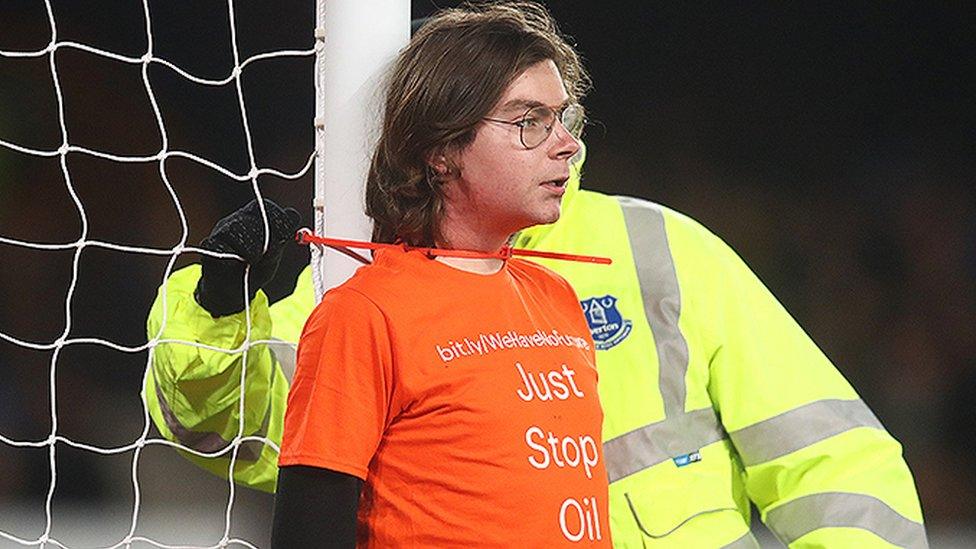Just Stop Oil: Activists says they have 'a duty to protest'
- Published
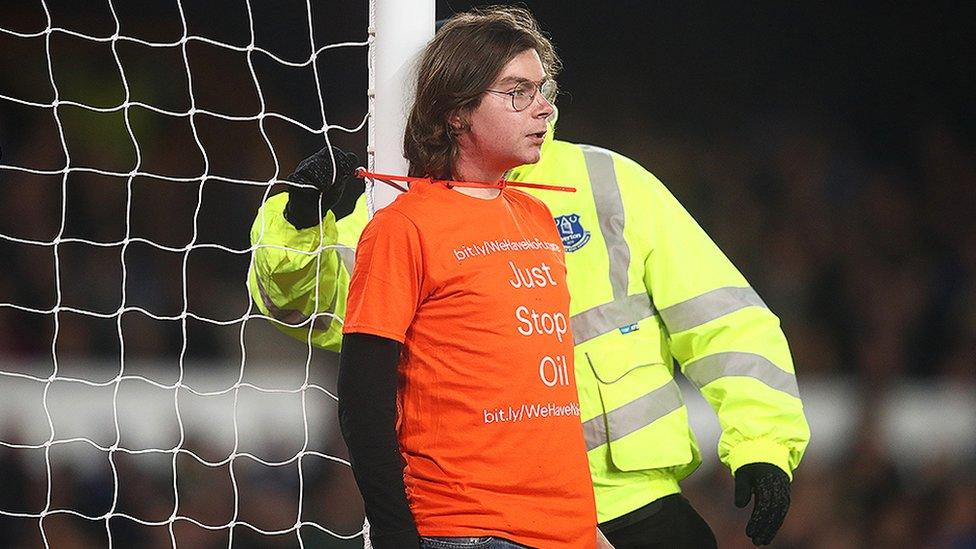
"I found myself feeling just so completely and utterly helpless, and realised I had to take action."
Claudia Penna Rojas became a part of climate activist group Just Stop Oil in February.
You might know them for their protest actions which have included tying themselves to football goalposts, climbing on oil tankers and stopping traffic.
"I was aware of global warming as an issue, but the urgency of the situation has sunk in," 24-year-old Claudia tells Radio 1 Newsbeat.
Many of the impacts of global warming are now simply "irreversible", according to the Intergovernmental Panel on Climate Change, with their scientific reports being described as "a code red for humanity" by the UN Secretary General António Guterres.
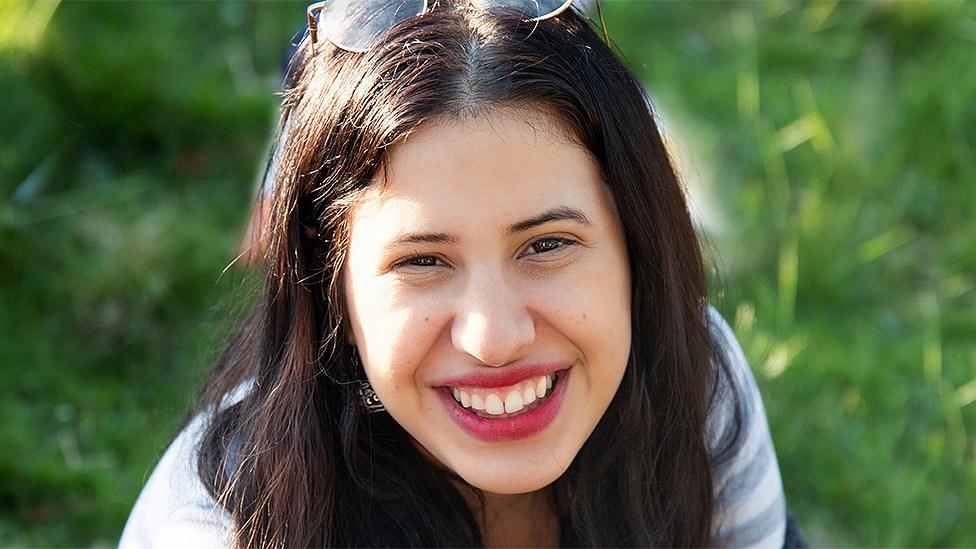
"The idea of bringing a child into this world, just feel so utterly unfair. And that's no judgement to people who have children," Claudia says
Just Stop Oil describe themselves as a "coalition of groups working together" to demand the government stop the exploration, development and production of fossil fuels - like oil, gas and coal - in the UK.
It has divided opinion, with some criticising their disruptive tactics and others praising, external them for raising attention.
Methods such as strikes, boycotts and mass protests - often used by climate protest groups to make their point - have been criticised for being extreme, "selfish" and creating too much disruption to people's lives.
Members of the group have broken the law and been arrested for offences such as criminal damage.
Some politicians have condemned, external the group's tactics for causing lives to be "brought to a standstill".
Newsbeat has been finding out more from the individuals involved in the group.
'It feels like a duty'
Claudia moved to the UK aged eight, from Chile, where most of her family still live. She says Chile has faced "mega droughts" for many years, and believes it's a result of climate change.
"People don't have access to water and I'm terrified that within the next few years, my family could be struggling to survive."
"Now's the time where we have to give it absolutely everything. It doesn't really feel like a choice, it feels like a duty."
She hoped one day to have a family of her own, but doesn't think that'll happen because of the climate crisis, saying it "feels unfair" to bring a child into "this world".
For Zak, he was living "a normal child's life', when he started to see "there was injustice in the world" from the age of 12.
"I thought what I've been doing for the past two years in the animal rights movement, it's not achieved much change," the 15-year-old says.
"I was looking to get involved in action, which is going to create change."
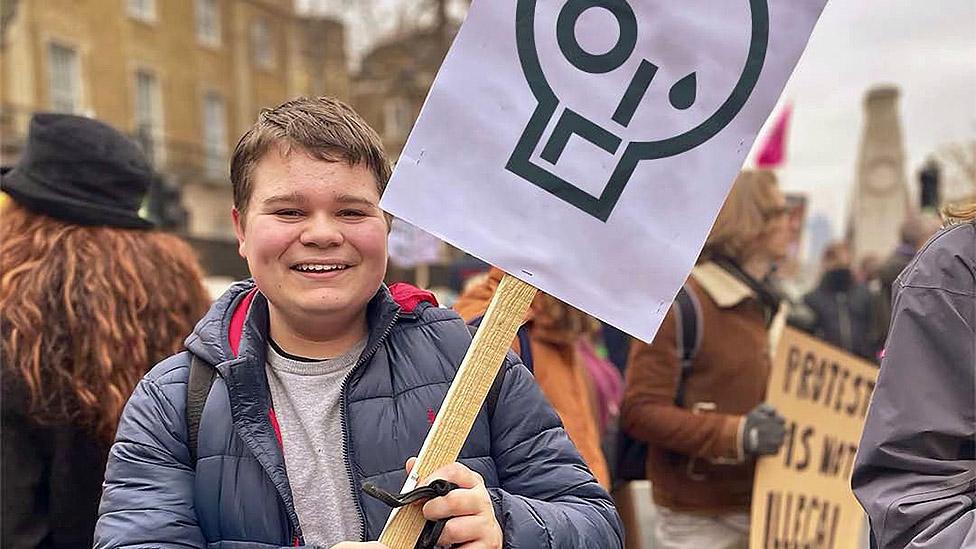
Zak says he's always tried to "help people" and "wanted to be a paramedic" growing up
Zak joined the group after being inspired by the Insulate Britain campaign, who were known for gluing themselves to the motorway and stopping traffic.
Xanthe Flynn, who uses the pronouns they/them, says they don't like to "call it activism because it's my whole life".
"It's not just a protest that you go and do, and then you go back to your safe space," the 18-year-old says.
"It's also been a massive learning space. Because I didn't get taught really about this in school."
'Bodies on the line'
Zak and Xanthe have both been arrested as a result of their actions.
"I sat on top of an oil tanker for about six, seven hours before I was arrested," Zak says.
Zak says being held by police "isn't the nicest thing" but is "incomparable to the consequences of climate change".
"Being arrested is not something any of us want to do, it's quite scary," Xanthe adds.
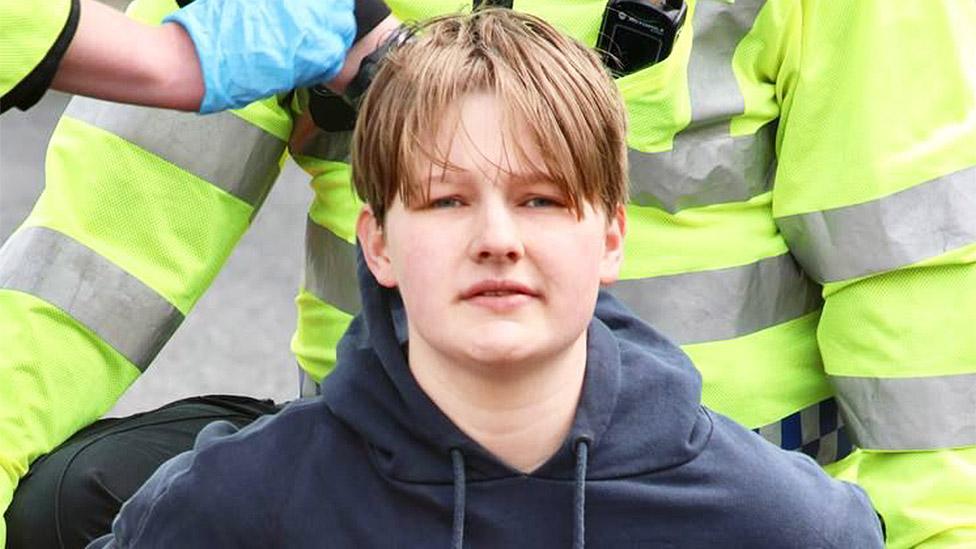
Xanthe is interested in learning sign language but their time is taken up with the protest actions
As for the impact on their futures of having a police record, both are concerned, but "it's not the most important thing" Xanthe says.
"I'll explain to future employers why I was arrested. And if they don't understand I think it'll be very hard to be in that job."
"Would I really want to be employed by someone who judges me for getting arrested for doing something which is quite literally an act of love?," Zak adds.
But are there other, less disruptive ways to get their message across?
Claudia says they don't "want to cause disruption" and adds their tactics are "not something they choose to do for fun".
After years of petitions and words, she adds "we're out of time".
"What other options are we left with, apart from to put our bodies on the line," says Zak.
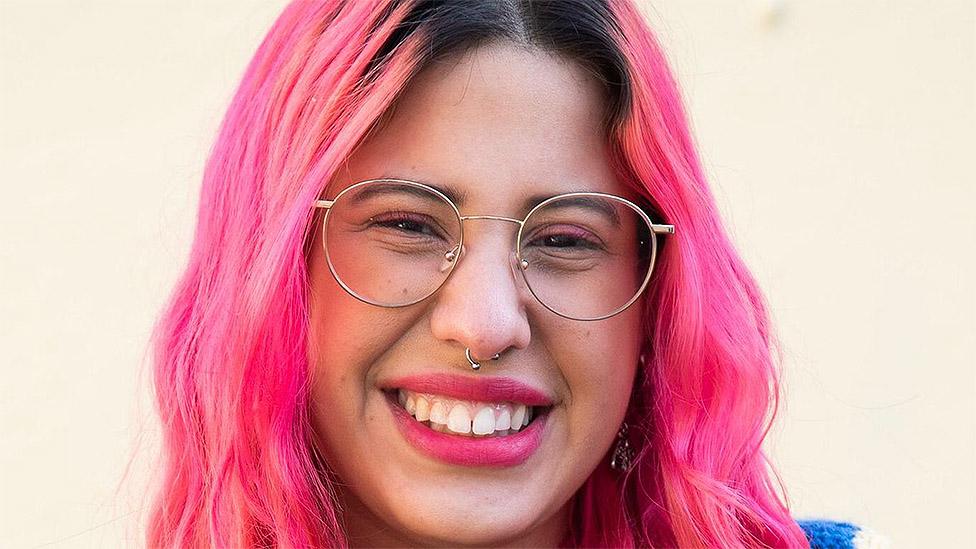
Claudia says: "We're doing this because for decades, people have been trying petitioning, writing to their MPs, and none of it has worked"
There has been criticism of the group for being "middle-class, privileged" young people,, external but Claudia says: "If you have the privilege of being able to take that risk, then you have a duty to do so".
Zak, though, says he has encountered people from lots of different backgrounds in the group.
"They take time off work, some of them potentially risk their jobs."
"I don't think it's a case of everyone being a trust fund kid whose lifestyles are funded by parents.
"I think it's a case of people caring about the future generations."

Protesters from Just Stop Oil
Xanthe is happy to use their privilege of "being white and born in Oxford".
"I can do that because I know that I might not get treated as badly, so the consequences won't be so bad."
"We can use our privilege. Because a lot of people can't."
Despite feeling worried about the current situation, Claudia, Zak and Xanthe are united in still optimistic things can improve.
"I think that we need to have hope to continue and hope that something will change," Xanthe adds.


Follow Newsbeat on Instagram, external, Facebook, external, Twitter, external and YouTube, external.
Listen to Newsbeat live at 12:45 and 17:45 weekdays - or listen back here.
- Published26 April 2022
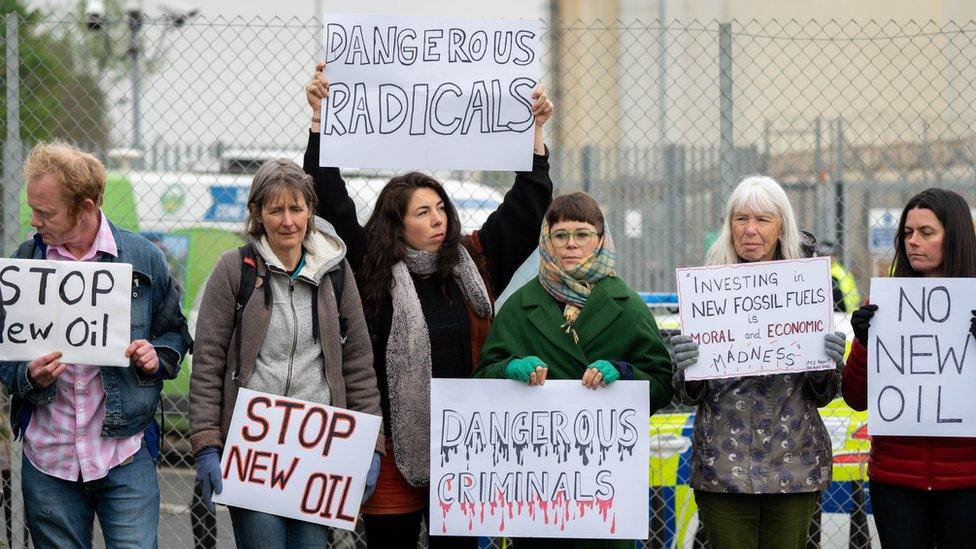
- Published21 March 2022
